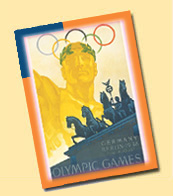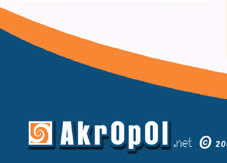 |
||||||||||||||||||||
 |
 |
 |
 |
|||||||||||||||||
|
The
Games of the XI Olympiad held in Berlin were opened, with swastikas
and military parade, by Adolf Hitler. The German authorities, trying
to prove the superiority of the so-called Aryan race, used propagandistic
methods, including, for the first time in the Olympic history, the television
broadcasting; large screens were set up throughout Berlin, allowing
the local people to see the Games live. 1936 saw the introduction of
the torch relay, in which a lighted torch is carried from Olympia to
the site of the current Games, a proposal of Carl Diem, a German philosopher
and head of the German Organizing Commitee. Basketball, canoeing and
team handball made their first appearances, while polo was included
in the Olympic programme for the last time. The hero of the Games was
the African-American sprinter |
and
long jumper Jesse Owens, who won four gold medals. During the long jump
competition, Owens’ German rival, Luz Long, publicly befriended him
in front of the Nazis. Marjorie Gestring, aged 13, from the United States
won the gold medal in springboard diving and remained the youngest female
gold medalist in the history of the Summer Olympics. Inge Sorensen, from
Denmark, earned a bronze medal in the 200-medal breaststroke at the age
of 12, making |
her the youngest medalist ever in an
individual event. Hungarian water polo player Olivier Halassy won his
third medal despite the fact that one of his legs had been amputated
below the knee. Rower Jack Beresford, from Great Britain, won a gold
medal in the double sculls event, marking the fifth Olympics at which
he earned a medal. Kristjan Palusalu, from Estonia, won the heavyweight
division in both freestyle and Greco-Roman wrestling. |
||||||||||||||||||
 |
||||||||||||||||||||
|
Opening
date:
Candidate cities: Barcelona |
||||||||||||||||||||
 |
||||||||||||||||||||
 |
 |
|||||||||||||||||||